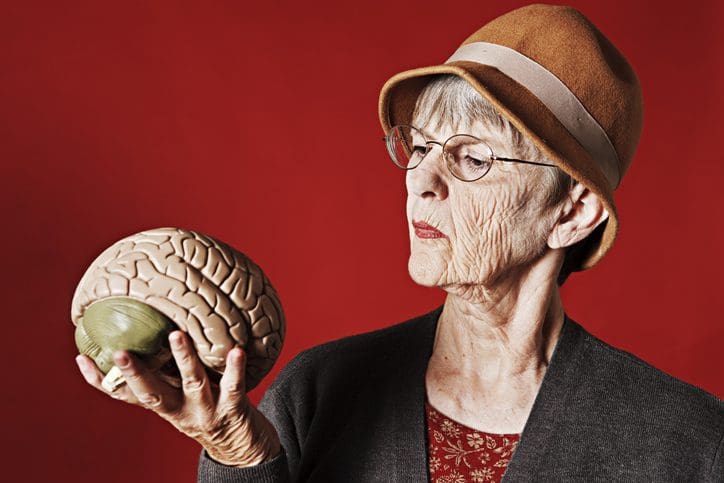Age can bring with it changes in physical health as well as fluctuating emotions and moods that may indicate mental health disorders. Anxiety and depression are common mental health conditions that may arise or worsen with age. But how can you tell if the fearfulness your loved one displays is an anxiety disorder or the result of a brain condition like dementia?
Dementia can masquerade, at least at first, as many other issues. It can be related to vision and hearing issues as well as anxiety, depression, and extreme mood swings. Is your mother anxious about driving places because her vision is worsening or because she gets confused about where is or because she’s developing an anxiety disorder? Is your father’s temper more explosive than usual because he is suffering from depression or because he feels like he’s losing control and independence?
If you have concerns about your own or a loved one’s mental health, talk to a professional. A doctor or therapist can help you and your loved one figure out the cause of the mental health issues and, if dementia is determined to be at play, can provide the care and support available.
Anxiety & Dementia
It’s important to note that anxiety is a mental health condition and dementia is a brain condition. Both can be present at the same time, and someone with dementia often develops anxiety in response to their brain’s deterioration.
If your loved one has been diagnosed with dementia and is in the early stages of the disease, they may need help managing anxiety. According to the Alzheimer’s Society, anxiety is more common in people who “still have good insight and awareness of their condition,” especially if they have vascular or frontotemporal dementia (FTD). Anxiety is less common in people with Alzheimer’s disease.
Anxiety can arise in seniors (even those without dementia) for a number of reasons:
- Changes in home life, family life, daily routine, health, finances, etc.
- Past or ongoing trauma that has not been addressed
- History of anxiety or anxiety disorders
People who have dementia may develop anxiety around memory loss and what the future will hold. They may worry that they will not get the proper care.
While there is no cure yet for dementia, anxiety is treatable with medication, therapy, and self-care. If you or a loved one is suffering from anxiety related to dementia, it’s important to get treatment. Work with a doctor or psychiatrist to determine whether medication is appropriate, and meet with a therapist regularly. Cognitive-behavioral therapy can be especially effective for people who are anxious about dementia.
In addition, self-care routines can be helpful. Avoiding alcohol and caffeine and eating a wide range of healthy foods is helpful, as is physical activity, especially outdoors. People with anxiety can also benefit from group activities (singing in a choir, taking ballroom dance lessons, joining a hiking or walking club). You can help a loved one by helping them adapt their home in ways that make them feel safe and comfortable, and by letting them talk about their worries.
Depression & Dementia
As with anxiety, diagnosing depression in people with dementia can be tricky, as symptoms can be similar. People with depression (with or without dementia) can display symptoms such as apathy, withdrawal from social interactions and activities, trouble concentrating, and persistent feelings of sadness or numbness.
In a person with Alzheimer’s, depression may be less severe and not last as long (or may come and go repeatedly), and the person may be less likely to talk about or attempt suicide.
In addition to medication and therapy, depression in people with dementia can also be helped with support groups and self-care routines (which may require help from a loved one or caregiver). Such routines can include a regular daily schedule that allows the person to know what to expect and takes advantage of the times of day they are most lucid. The Alzheimer’s Association also suggests the following:
- Make exercise and enjoyable activities a frequent part of the person’s schedule
- Acknowledge the person’s frustration or sadness while expressing optimism that they’ll feel better soon
- Celebrate small achievements
- Help the person find ways to contribute to their family life
- Express love, respect, and appreciation for the person
Help at Raleigh Oaks
If you or a loved one are struggling with depression, anxiety, or other mental health concern, whether or not it is complicated by dementia, reach out to Raleigh Oaks Behavioral Health. Our facility in Garner, NC, offers compassionate psychiatric and medical assessment that will help us develop a treatment plan that best meets each client’s unique needs. We also support family members and caregivers of our clients.





